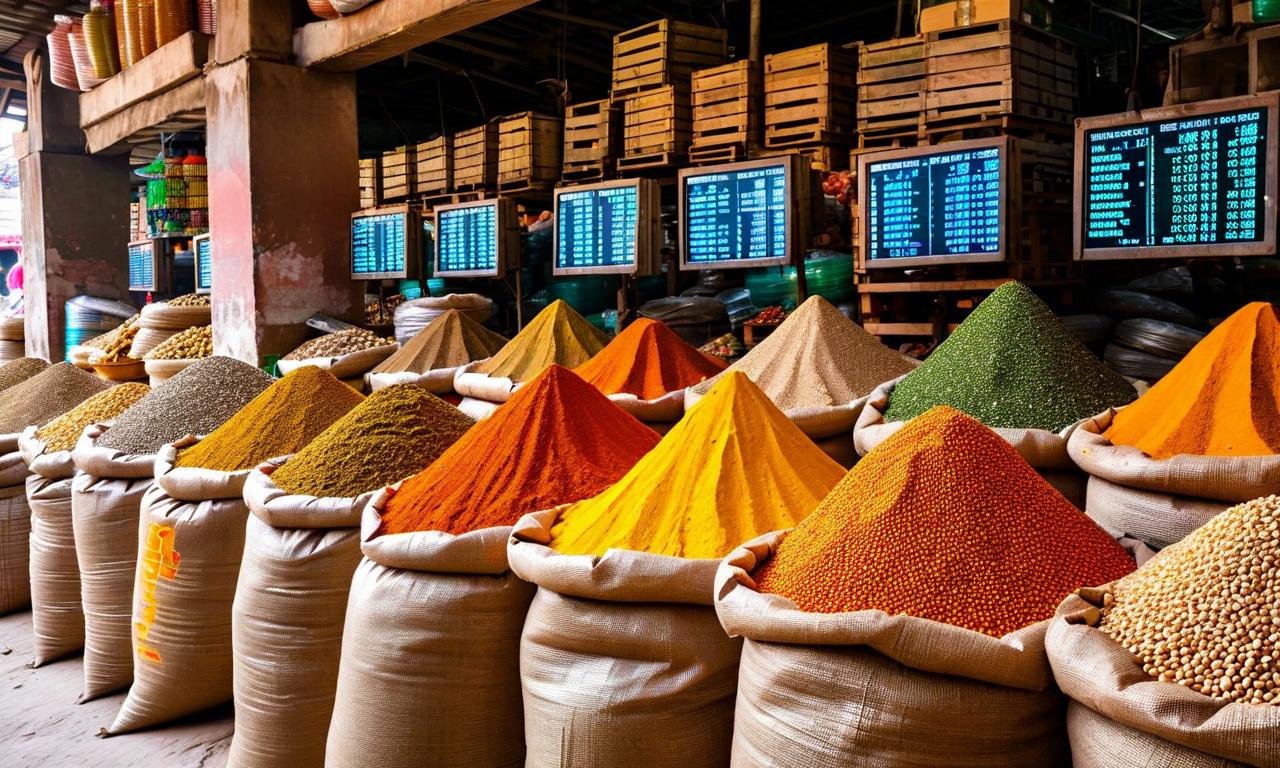NCDEX Secures $88 Million Investment, Eyes Equity Market Expansion
India's National Commodity and Derivatives Exchange (NCDEX) has raised $87.99 million from global trading firms and domestic brokers. Investors include Citadel Securities, Tower Research, Acacia Partners, Zerodha, and Groww. NCDEX received approval to launch equity and equity derivatives trading, with equity trading planned first, followed by derivatives. The exchange faces challenges due to stricter derivatives trading regulations and bans on certain agricultural commodity futures trading.

*this image is generated using AI for illustrative purposes only.
India's National Commodity and Derivatives Exchange (NCDEX) has successfully raised $87.99 million (approximately 7.3 billion rupees) from a mix of global trading firms and domestic brokers. This significant investment comes as the agricultural commodity exchange prepares to venture into equity offerings within the next year.
Global and Domestic Investors Show Confidence
The fundraising round has attracted notable global players in the financial markets:
- Citadel Securities is set to invest 170 million rupees
- Tower Research has committed 340 million rupees
- Acacia Partners is also participating in the investment round
Each of these global firms is expected to acquire a 1%-2% stake in NCDEX. On the domestic front, prominent Indian online broking firms Zerodha and Groww have submitted binding bids to invest, further bolstering the exchange's capital base.
Regulatory Approval and Expansion Plans
NCDEX received in-principle approval from India's market regulator in July to launch equity and equity derivatives trading. CEO Arun Raste outlined the exchange's strategic rollout plan:
- Initially, NCDEX will introduce equity trading
- Equity derivatives are slated to follow in about a year's time
This expansion marks a significant diversification for NCDEX, which has traditionally focused on agricultural commodities.
Navigating Regulatory Challenges
The exchange's move comes at a time when Indian regulators have implemented stricter controls on derivatives trading. Notable regulatory actions include:
- Tightening of derivatives trading rules
- Extension of a ban on futures trading for seven key agricultural commodities until March next year
These measures are part of the government's efforts to control food inflation. Raste acknowledged that these regulatory steps have led to a decrease in trading volumes. However, he remains optimistic about the exchange's future, noting that NCDEX's reach into smaller towns could potentially increase participation in India's regulated equity market.
Implications for India's Financial Markets
This development signals a significant shift in India's commodity exchange landscape. By expanding into equity trading, NCDEX is positioning itself to play a larger role in the country's financial markets. The investment from both global and domestic players underscores the confidence in NCDEX's growth potential and the broader Indian market.
As NCDEX prepares for this transition, market participants will be watching closely to see how the exchange's expertise in commodities translates to the equity space, and how this move might impact the overall dynamics of India's financial ecosystem.
























